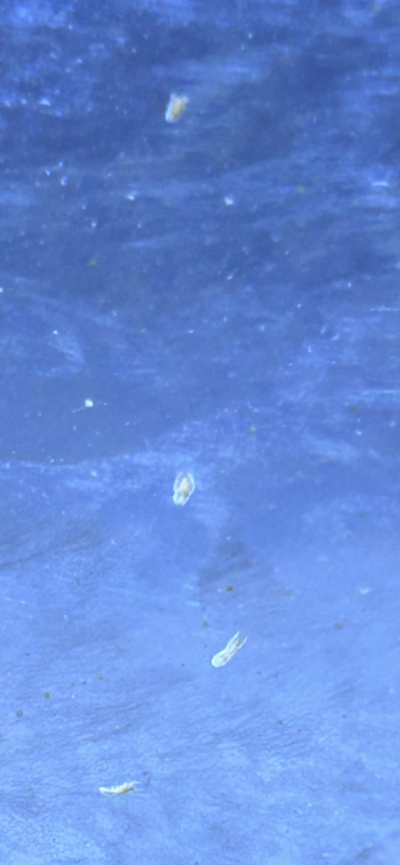Im new to this website heard a lot good things from it, I recently started a reef tank my cycle has been done, I have gotten some diatom in my tank and I recently started to cycle my salt water to clean it up I have four scarlet hermit crabs and three snails, I recently added some tigger pods and I notice I that seen this little worm types all over my glass, does anyone know what these are? Should I be concerned?

















